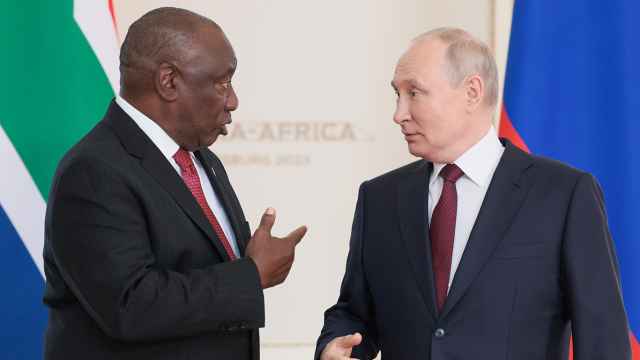The Communications and Press Ministry is seeking 80 billion rubles ($2.6 billion) next year to help government agencies deploy systems that will allow citizens to get services through the Internet, a ministry official told reporters Thursday.
“The battle against corruption is one of the main goals of this effort,” said Andrei Lipov, director of the ministry’s department for information technology and informatization policy.
“If we can provide even a part of the services people need via an e-government system, we expect corruption associated with government services to citizens to go down,” he said.
Some government agencies have been slow to react. Initial reviews by the ministry of nearly 60 federal agencies’ IT plans have been “disappointing,” Lipov said, and 23 have not even submitted a plan.
Some government bodies and regions are making good progress, however.
Lipov highlighted the Agriculture Ministry and the Office of Presidential Affairs as moving ahead well, and said that among the regions, the republic of Tatarstan and in Ufa, the capital of Bashkortostan, were very advanced in their IT planning.
At the heart of the project is a “system of interagency electronic interaction,” or SMEV by its Russian acronym.
The federal SMEV is to be operated by the Communications and Press Ministry, while each region is to name a body to operate its SMEV.
The SMEV will facilitate the implementation of a new law coming into effect next year that will prohibit a government agency from demanding documents from a citizen if that — or any other agency — already has such documents in its possession.
The Health and Social Development Ministry’s project to make digitized individual health records for every citizen is in a pilot phase this year and should be rolled out next year, Lipov said.
Foreign passports have been issued to 60,000 citizens so far this year using the Federal Migration Service’s electronic portal, he added.
The deadline for agencies to begin providing services electronically is June 1, 2011. “This is the Rubicon,” Lipov said. But the ministry understood that not everyone would be able to make it. It should be clear by December which agencies will be in good shape for next year, he said.
President Dmitry Medvedev has been a strong supporter of e-government initiatives and oversaw the effort while still a first deputy prime minister.
A Message from The Moscow Times:
Dear readers,
We are facing unprecedented challenges. Russia's Prosecutor General's Office has designated The Moscow Times as an "undesirable" organization, criminalizing our work and putting our staff at risk of prosecution. This follows our earlier unjust labeling as a "foreign agent."
These actions are direct attempts to silence independent journalism in Russia. The authorities claim our work "discredits the decisions of the Russian leadership." We see things differently: we strive to provide accurate, unbiased reporting on Russia.
We, the journalists of The Moscow Times, refuse to be silenced. But to continue our work, we need your help.
Your support, no matter how small, makes a world of difference. If you can, please support us monthly starting from just $2. It's quick to set up, and every contribution makes a significant impact.
By supporting The Moscow Times, you're defending open, independent journalism in the face of repression. Thank you for standing with us.
Remind me later.






